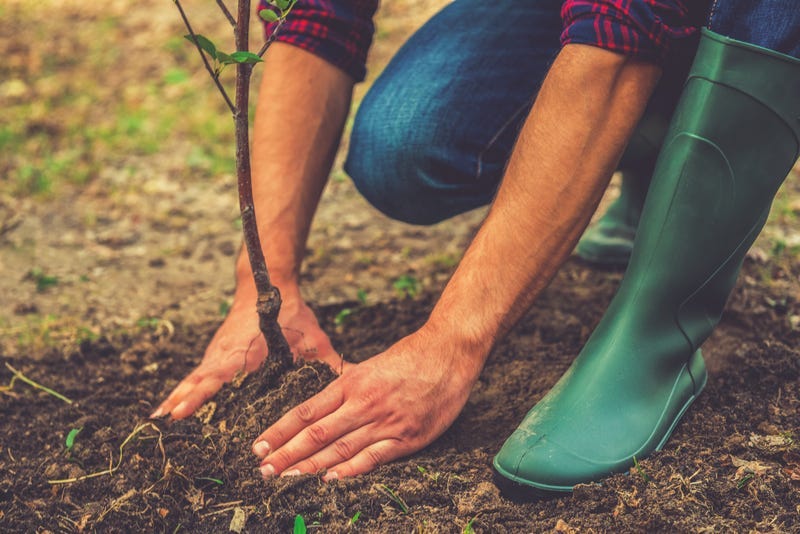
More than sixty years ago, old Chauncey already had a plan for lowering levels of carbon dioxide in the atmosphere. At that meeting, he suggested planting 10 trees for every automobile and 100 for every truck.
Trees are still an all-natural part of environmentalists’ toolbox for improving air quality.
RELATED: Philly property owners can get free trees this spring
“Trees clean the air,” explained certified arborist Pete Williams of the Bartlett Tree Company out of Dublin, PA. In cities, trees are especially valuable for removing carbon dioxide and particulate matter from smog-prone breezes and for reducing the heat index with all that cool shade.
Among other numerous benefits, trees absorb water runoff, Williams added, “and they provide soil control – meaning they help prevent erosion. They give a home to animals. And there’s just the aesthetic beauty of a tree.”
There’s another kind of green in that aesthetic: healthy trees enhance property values. A Portland, Oregon study found street trees not only added almost $9,000 on average to a home’s sale price, but took 1.7 days off its time on the market.
Australia is prepping to plant 1 billion trees, which it estimates will scour 18 million tons of greenhouse gases from the atmosphere by the year 2050. In Philly, the goals are more modest and immediate.
The Center City District Foundation’s new initiative, Plant Center City, aims to get 200 new trees in the ground in the central business district during the next two years. They’re fundraising to help offset the $2,500 it costs per tree to either excavate a new trench then plant a new tree or to replace a dead one.
RELATED: Center City District looks to plant more trees and needs help doing it
The Philadelphia Parks and Recreation Department encourages local homeowners to green up their streets in the spring and fall with free saplings available through its Tree Philly program. Check here for how to register and where to pick up a tree to plant.
The Pennsylvania Horticulture Society trains Tree Tenders all over the greater metro area. In-person classes offer hands-on training covering biology, identification, planting and proper tree care. Webinars are also available for aspiring arborists.
“The first several years, trees need a little more care,” Williams advised. “They need to be watered; they need to be properly pruned to train their future growth. After that, it really depends on what kind of tree you’ve planted and the location you chose for it.”
If you don’t have a rake in your hands, you’ve got to admit, trees are awesome. Though perhaps, not as awesome as this bonus clip of Clint “Dirty Harry” Eastwood singing “I Talk to the Trees.” Movie musical gold, my friends.
